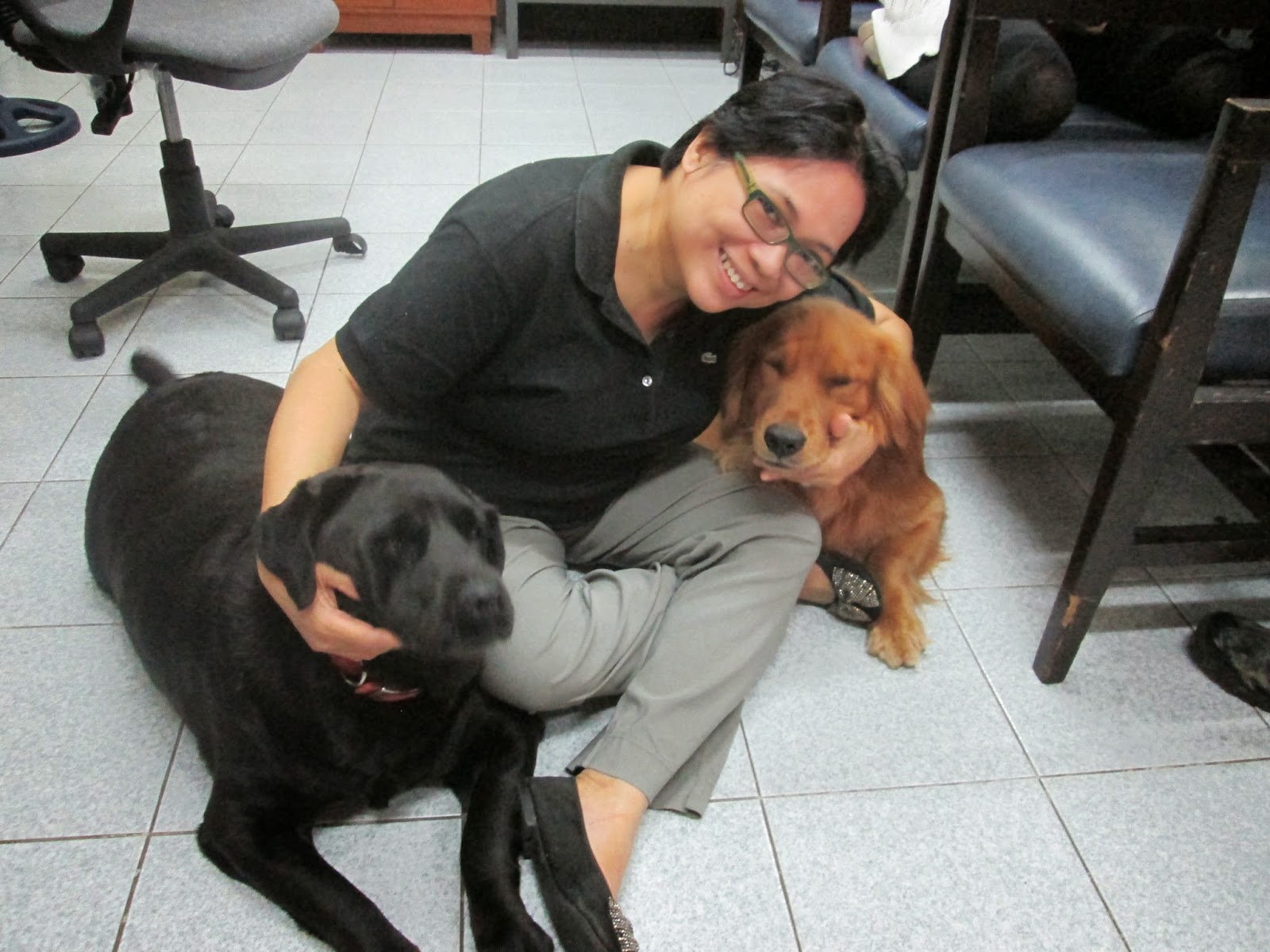Producer/Co-host: Corina Ivy Cabotage
Episode: October 1, 2014
Guest: Francis Cleofas,
Cleofas Dog Training Center
Last October 1, I had the chance to talk to Dog Coach Francis Cleofas, a
renowned dog trainer and one of the country’s dog behaviour consultants, about
force-free dog training.
Force-free dog training is a type of training where the owner is taught
about his dog's psychology, therefore, maintaining a harmonious relationship
between the owner and his dog. What is interesting about this type of dog
training is there are no harmful devices and methods used, only a clicker, a
small device with a button, which is pressed to associate the dog with the
clicking sound. The clicking sound serves as a ‘trigger’ in the dog, which is
the cue the dog follows. By far, the clicker method is the most efficient and
harmless way of dog discipline.
According to Coach Francis, there are several dog training theories, but he
only had time to discuss two. The dominance theory, which is also called the
traditional way of dog training, believes in the dominance of the trainer over
his dog. The theory was formed by scientists studying a certain pack of wolves,
and they found out about the prominence of an ‘alpha’ wolf in every group. The
alpha wolf acts as the leader of the pack, and every member follows him. In the
dominance theory, the trainer or the owner acts as ‘alpha,’ and the dog must
follow.
The dominance theory is where the abuse comes in. If the dog fails to
follow the trainer, it gets verbal and physical punishment. The dog may be
given a tight or a spiked collar as punishment. This is traditional, and almost
no dog trainers use it anymore.
The other theory, also the most current and the safest type, is the
force-free training or the ‘positive reinforcement theory.’ This theory doesn’t
use any type of abuse and uses operand conditioning, wherein there is a reward
for every positive or ‘good’ response from the dog.
Coach Francis reiterated two (2) types of reward punishment in dog
training: the positive punishment, or ‘plus punishment,’ where the dog is given
food, toys, or attention whenever the dog successfully complies to every
command his owner or trainer gives, and the negative punishment, where the dog
is deprived of food and attention – but only for a short time.
Apart from reward punishments, there are also motivations a dog needs –
food, play, our care and praise, “life reward” – that keep him going. “Life
reward” means that the dog can accompany you everywhere, because he follows
every order. “You always and only reward good behaviours,” Coach Francis
emphasized.
Voice modulation is also important in dog training. Since the dogs’ hearing
is very sensitive, voice tone is modulated. Every change in voice pitch affects
the dog’s actions, since every tone has a different meaning in the dog’s
psyche.
By the end of the program, Coach Francis showed dog tricks his dogs can
perform. One is the ‘sitting pretty,’ wherein the dog sits on her hind legs and
waits for the cue from the trainer before doing certain acts. It was amazing
how the dogs performed in sync with their owner.
I learned so much about dog training and about dogs in general. I encourage
every dog owner out there to discipline their dogs through force-free dog
training, since it is harmless, and it keeps both the owner and the dog happy.
This is my first time co-hosting and producing for radio, and it felt good.
Coach Francis was a very good and informed talker, which is a good thing. I
also liked the part when they brought Sophie and Serena inside the studio and
showed how tricks are done. The experience was eye-opening, and it made me want
to write about and fight for animal rights and welfare when I become a
journalist in the future.
Dog Coach Francis with Sophie (black Labrador) and Serena (golden retriever):
Inside the radio studio, with me at the center:
Prof. Khrysta Rara with Sophie and Serena:
Sophie and Serena putting their pawprints on the guestbook:
Episode transcription:
https://drive.google.com/file/d/0B7mRVxlBs_LnTjZLeFNyalVEcHM/view?usp=sharing
https://drive.google.com/file/d/0B7mRVxlBs_LnTjZLeFNyalVEcHM/view?usp=sharing






No comments:
Post a Comment